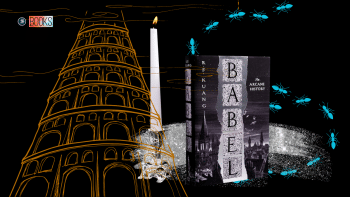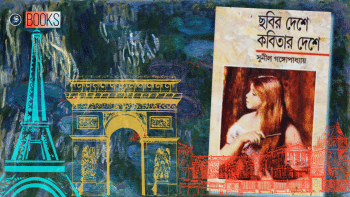Despair and death in ‘Truth or Dare’

Bangladeshi literature in English has had a considerably late start compared to its South Asian counterparts in India and Pakistan. A few exceptions aside, a consistency came to be seen only by the early 2010s. Bengal Lights Books, founded in 2011 and presently known as ULAB Press, has been among the prominent actors here to have helped usher in a string of new works of English from Bangladeshi Writers. In 2017, they had put out Truth or Dare, the debut book of stories by Nadia Kabir Barb, a British Bangladeshi writer and long-time columnist at The Daily Star. The book is part of this new wave of literature (along with the works of her contemporaries Nadeem Zaman, Ahsan Akhbar, and Sharbari Z. Ahmed) that seeks to approach Dhaka and its diaspora with a more pronounced cosmopolitan vision. Therefore, it is delightful to see Nadia Kabir's collection has been given a new life in Britain six years later.
Truth or Dare, reprinted in a revised and expanded version by the UK publisher Renard Press, sees Nadia Kabir Barb weave a dozen and a half stories out of themes of death and despair. She writes with clarity. Occasionally moving, Truth or Dare at its best is able to provide a complexity of emotions and history through its characters. In stories such as "The Enlightenment of Rahim Baksh" and "My Father's Daughter," the author shows her expertise in writing minute scenes encompassing entire lives and characteristics of these individuals populating her world. Especially in the latter story, which revolves around a daughter's dealings with a father who left to start another family, the reader finds themselves fully immersed in the cruelty of fate and family.
In other places, however, Nadia Kabir Barb's stories of families fall flat. Reading "Inside the Birdcage," one can come to realise that the portrayal of working class lives may not be the author's strongest suit. How realistic is it, the reader would certainly question, to have a family who lives in a flat to not have access to ceiling fans and making do with a lone table-fan? In "Don't Shoot the Messenger", siblings come together to discuss the impending end of their parents' marriage, but a fantastic premise is let down by an over-reliance on typical twists and turns.
The stories in Truth or Dare deal overwhelmingly with death through road accidents. The repetition is meditative and unnerving, mirroring the regularity of accidents in the city. In "Stranger in the Mirror", a son discovers, after the death of his parents in a road accident, an old photo of his mother with an ex-boyfriend who looks suspiciously like him. "Living with the Dead" sees a lady remorseful at losing a friend when he doesn't "see the oncoming bus as he [steps] off the pavement". In "The Life of Others", Manik survives his road accident but he might as well be dead as job-prospects die up and he turns increasingly defeatist, begging in front of the American Embassy to make ends meet. Among these, the story "Let Me Go" is a rare gem, where a wife's anguish in dealing with a husband dying at the hospital after a car accident shows Nadia Kabir Barb's real strength in the medium of the short story.
At times, it is a stroke and not an accident that the characters must confront ("In Case I Die" and "When Crows Come Calling"), yet a genuinely interesting aspect of Truth or Dare is the frequency of characters being pushed over the edge: a bridge or a window ledge, at times by accident or choice. It is surprisingly wonderful, then, to find the title story play around with these same emotions and tropes only to outwit the reader in the end. Raju and Tareq, the young schoolboys in "Truth or Dare", dare each other to climb atop a 10 storey building that is under-construction. Though Raju understands the danger in this act, he is unwilling to back down. He believes "not going through with a dare was unthinkable and tantamount to being labelled a coward". But as we see Raju attempt this feat in the end, we are left not with the usual horror and distress but rather with hope and the triumph of innocence. One comes away from this story optimistic about what Nadia Kabir Barb will offer next to her readers.
Shahriar Shaams has written for Dhaka Tribune, The Business Standard, and The Daily Star. He is nonfiction editor at Clinch, a martial-arts themed literary journal. Find him on X: @shahriarshaams.

 For all latest news, follow The Daily Star's Google News channel.
For all latest news, follow The Daily Star's Google News channel. 








Comments